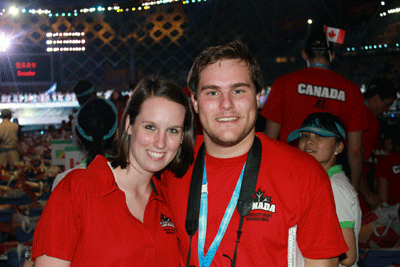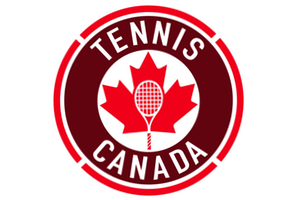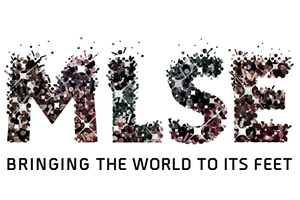By Alan Abrahamson, 3WireSports.com
SHENZEN – The 60 “young journalists” from all over the world had spent their first two mornings in “school” listening to and then asking questions — lots of questions — of the secretary-general of sport’s top court, the Court of Arbitration for Sport, and then the senior media manager of the World Anti-Doping Agency.
Heavy, heady stuff from and for Matthieu Reeb of CAS and Terence O’Rorke of WADA.
Now it was my turn, as program director of this first-ever AIPS “young journalists” Summer University Games program, to ask the questions — not only to see what they had learned but what they could teach us, all of us, amid so much concentrated talk of legal maneuvering and doping jargon.
In a couple weeks, I said, the track and field world championships will take place in Daegu, South Korea. How many of you, I asked, believe the eight guys who ultimately make it to the starting blocks in the men’s 100-meter dash finals will be doping-free? Not one hand went up.
I looked around the room. The 2011 Tour de France ran last month, I said. Some people believe it was cleaner than previous Tours. How many of you believe the 2011 Tour was clean? Maybe three hands went up.
And yet — here’s the remarkable thing.
There isn’t in this group even a hint of cynicism.
Indeed, on Day One of this program, before “school” launched, we asked each of the 60 young people to take the brave step of getting up on stage and saying a few words into our camera, with all the others watching. Most everyone in the group is in their early 20s; a couple are still in their teens; a few are still in university; others are already working at print and broadcast outlets.
Predictably, some were shy. And then there was Julio Bonnin Cadogan of Paraguay, who got right up and said, you know what, sport is a force for good — it can do no less than help us all overcome racism in our world, and that’s why I’m here, to write stories as an agent for change.
The idealism, the enthusiasm, the curiosity that these young people have brought with them to Shenzhen offer great reminders of why journalism matters — despite the profound elements re-shaping journalism, and the business of journalism, in these early years of the 21st century.
Too, why a program such as this one can make such a difference in the years and careers of young journalists, and in the legacies of hosts such as Shenzhen 2011.
Here were just a smattering of the smart questions that O’Rorke got asked:
Why isn’t Major League Baseball part of the world doping code umbrella?
What is WADA’s relationship with Interpol?
What is WADA’s view on the propriety of a national Olympic committee entering into a deal with a supplement company?
Reeb, among other matters, was asked to explain in detail the case involving the South African Oscar Pistorius, the double-amputee popularly known as the “Blade Runner.” (Since being cleared to run by CAS against able-bodied competitors, Pistorius has now met the qualifying standards to compete in the 400 at the forthcoming Daegu championships.)
Similarly, Reeb also was asked to explain the background and reasoning about the case involving the Brazilian swimmer Cesar Cielo, cleared by a CAS panel to swim at the just-concluded 2011 swimming world championships in Shanghai. (There, Cielo won gold in both the 50-meter freestyle and butterfly.)
It’s not just idealism, energy and enthusiasm that’s on display here in Shenzhen. There’s one further element, and it’s the ultimate difference maker.
It’s passion.
As I write this, it’s 12:45 in the morning.
Kelsey Wingerak of Canada is herself in the midst of writing three stories about tonight’s Serbia-Canada men’s basketball game (won by Canada in a big upset — the Serbs won the University Games title four years ago).
Jonathan Mishal of Israel just sat down in our 11th-floor workroom here at the Shenzhen Shanghai Hotel to bang out his story. The piece he wrote the day before for his hometown paper — he just sent that to me as a .pdf, in full-on color.
Thorkell Sigurbjornsson of Iceland, who is a TV guy, just tried his hand at a newspaper-style piece. It just dropped into my e-mail inbox.
A few moments ago, Ozan Can Sülüm of Turkey filed not just one but two stories. “Not sure they need editing,” he assured me in a side note.
And then there is Alex Bendaña of Nicaragua, who after just these few days is already a legend. He has cadged more free taxi rides than one would have imagined possible in this sprawling city. How he has done so, because his first language is Spanish and his English is quite good but his Chinese is non-existent — no one is quite sure.
Alex announced he is staying up, or waking up, at 4 this morning to catch the Real Madrid-Barcelona soccer game, the first leg of the Spanish Super Cup at Santiago Bernabeu in Madrid.
Class gets underway again at 10. At best, Alex will be working on three hours sleep. He promised he would be there.
The Passion.






